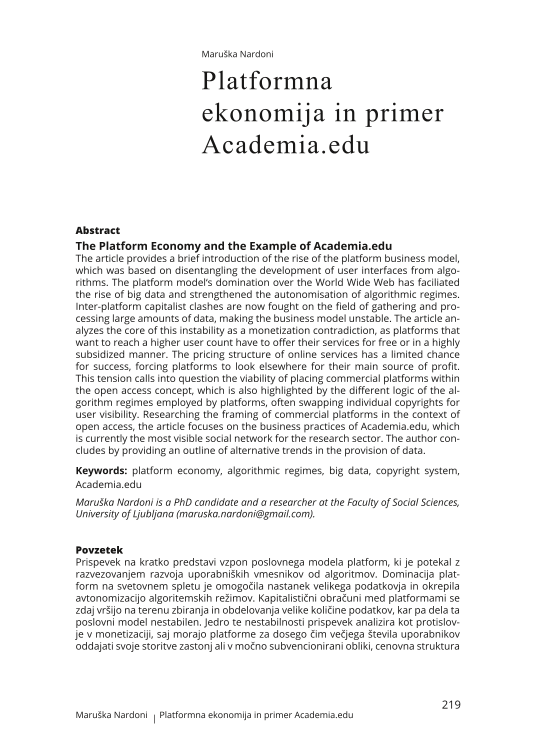The article provides a brief introduction of the rise of the platform business model, which was based on disentangling the development of user interfaces from algorithms. The platform model‘s domination over the World Wide Web has faciliated the rise of big data and strengthened the autonomisation of algorithmic regimes. Inter-platform capitalist clashes are now fought on the field of gathering and processing large amounts of data, making the business model unstable. The article analyzes the core of this instability as a monetization contradiction, as platforms that want to reach a higher user count have to offer their services for free or in a highly subsidized manner. The pricing structure of online services has a limited chance for success, forcing platforms to look elsewhere for their main source of profit. This tension calls into question the viability of placing commercial platforms within the open access concept, which is also highlighted by the different logic of the algorithm regimes employed by platforms, often swapping individual copyrights for user visibility. Researching the framing of commercial platforms in the context of open access, the article focuses on the business practices of Academia.edu, which is currently the most visible social network for the research sector. The author concludes by providing an outline of alternative trends in the provision of data.




